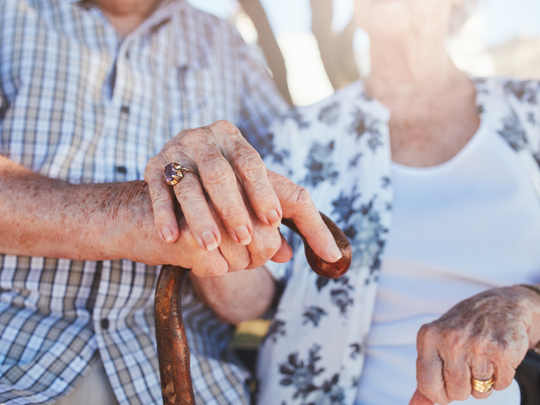
It was a life-and-death story that left many foxed. I was also amazed on hearing about the anecdote that raised in my mind a few unanswered questions.
My mother’s great grandmother, an octogenarian, was lying in the bed motionless. Her half-open eyes said it all. Her sons knew that their mother’s end was near. So, there was not a streak of worry on the face of any family member.
They were all taking it in their stride as an inevitable truth that, they said, would relieve her of her prolonged agony.
That day her condition having deteriorated, the family felt it was time to call the dying lady’s husband to enable him to see her for the last time alive. He was out on his daily social visit and would have returned late in the evening.
Interrupting his routine Babu Jwala Sahai Varma, a towering, handsome personality, his silvery beard flowing, walked into the big room of his palatial house in the Biharipur locality of Bareilly in Uttar Pradesh. He looked at the weary face of his dying wife and extended his hand to caress her hair.
In that poignant atmosphere, the old man told his wife in a slightly commanding voice, “You are 10 months older than me. Now, you go. I will follow you after 10 months.”
Hearing the voice of her lifelong companion, the grand old lady surprisingly opened her eyes, looked at him intently and the next moment she was gone.
My mother told us that after exactly 10 months, Jwala Sahai Varma passed away leaving the family and others foxed.
How could death strike Varma with such precision? Can a person fix the period of his stay on this earth and determine the day of his death? Is this choice available to us?
Also, is there some kind of conjugal bonding that influences the course of a couple’s life? Perhaps, yes. There are instances of couples dying within minutes or hours of each other, sometimes holding each other’s hand. What is that phenomenon?
Doctored birth
We are told that birth and death are not in man’s domain and that man has no control over them. But going by scientific achievements will it be too farfetched to say that man has falsified the claim to some extent?
Today, the IVF technique is used to cause conception at will. One can manage a baby’s birth on the day, date and time of his or her choice. By the same argument, a person’s demise can be caused by pulling out the plug at will. One may call it doctored birth and death but birth and death they are.
I read about a Tennessee couple who were married for 63 years. They wanted to die together — and they accomplished it. The surprising aspect was that the 84-year-old husband as well as his wife of 79, were battling the same ailment — lung cancer.
If one was sick, the other followed suit. If one had breathing difficulty, the other also had it — a strange coincidence! The day the lady died, her husband also expired within a few hours of the same ailment.
There was a curious case in Texas when 84-year-old Tom and his 82-year-old wife Delma died only 90 minutes apart. Their hands were clasped on their death beds. Delma fell sick first and got hospitalised. Soon, Tom also became ill and joined her on a bed next to hers. He passed away first with Delma joining him soon after.
It was exactly how they wanted to go. That was a touching scene.
Most Hindu women in India wish to die in the lifetime of their spouse, mainly for the fear of economic and social insecurity befalling them in the wake of widowhood.
For some the loss of the companion-confidante becomes unbearable which affects their health and life span.
I know of a devoted housewife who spent long hours in a hospital attending to her husband, a case of failing kidneys, and falling sick herself and dying after realising the gravity of the ailment.
I was reminded of these episodes by the recent demise of a journalist colleague’s father-in-law and his devoted wife within 10 days. The couple loved each other so intensely that she could not bear the loss. So, death arranged their reunion in heaven.
— Lalit Raizada is a journalist based in India












